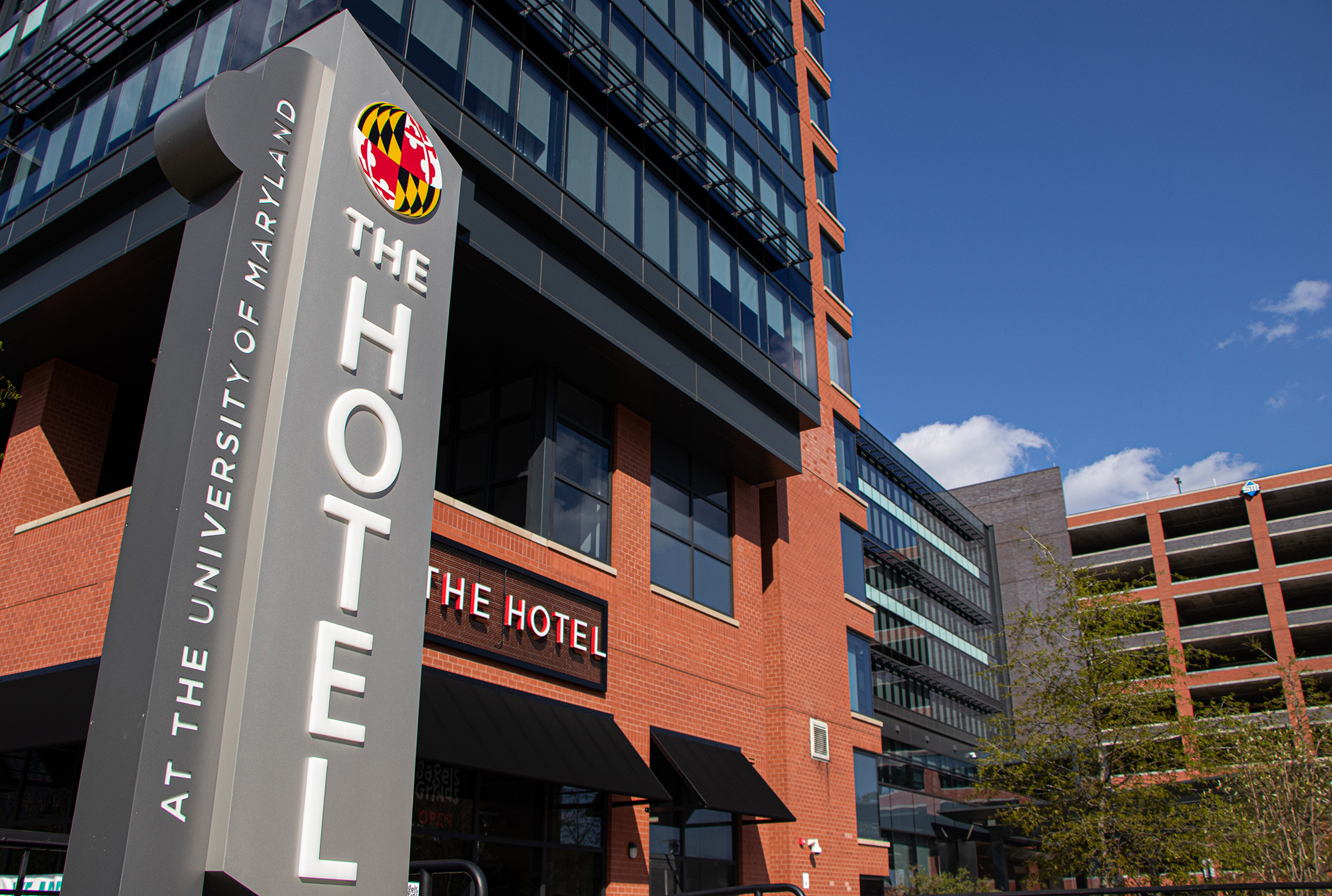When the London university where Caroline Carrington was studying last semester switched to online classes amid the coronavirus pandemic, finding housing for the fall wasn’t on the top of her mind — instead, she was more worried about getting home.
But as the start of the next semester drew closer, Carrington’s anxiety shifted: The University of Maryland accounting and economics major, set to graduate in December, needed to find a place to live for her last few months as a student.
Carrington, a rising senior, considered South Campus Commons, but she didn’t want to be stuck in a rigid lease. Then, she saw on social media that the College Park Marriott Hotel & Conference Center would be offering students a special deal in light of the circumstances.
The hospitality industry has been hit hard by the pandemic, but the Marriott and other College Park hotels have found a new way to increase occupancy: offering students discounted long-stay packages for the fall semester.
“The College Park environment is something that I would really miss,” Carrington said. “And what the Marriott was offering was a way to come back, have your own little bomb shelter.”
[UMD to start undergraduate classes online, delay in-person instruction for two weeks]
The Marriott’s plans are available for 30, 60 or 90 days, and include housekeeping services, internet and parking, as well as the option of a meal plan where students can purchase meal vouchers. Similarly, for a minimum of 60 nights, students can stay at The Hotel at The University of Maryland or the College Park Cambria.
Notably, these hotels are offering more flexibility than other options in the area. For instance, at The Hotel and Cambria, after the first 60 days students can opt out of their reservations and get a refund for the remaining days.
Meanwhile, students who plan to live in a dorm next semester were required to sign an addendum to their housing agreements stating that the university isn’t obligated to issue refunds if on-campus housing is closed or restricted during the semester due to the pandemic. And students who signed leases with on-campus apartments, such as South Campus Commons, have been unable to get out of their housing contracts, leaving them on the hook for thousands of dollars of rent even if they decide not to return to campus.
With Prince George’s County still a hot spot for the virus with more than 24,000 confirmed cases and in-person undergraduate instruction at the university already delayed for two weeks, students and families are concerned about flexibility for the upcoming semester.
Jeff Brainard, sales and marketing vice president at Southern Management Corporation — which runs The Hotel and Cambria — said families brought up these concerns to him at the virtual Off-Campus Living Fair on June 30.
“[Students] shouldn’t be penalized if the state shuts them down or the university makes a different decision or, worst case, they get sick,” Brainard said. “We don’t want that to be a financial burden either … While we’re a little bit more expensive, we have a higher value in safety and amenities.”
Carrington, who has severe asthma, said she was also attracted to the option of having her own bathroom and the amenities the hotel will be providing students, such as conference rooms turned into study lounges.
[Over 100 UMD students hire legal team in fight to terminate on-campus apartment leases]
But for some students, such as rising senior Zarafsha Ahmed, returning to College Park doesn’t provide the security they want.
With all of Ahmed’s fall coursework online, the only thing that made sense to her was to stay home with her family and save money.
“Living in a hotel, you’re going to have to move back … into a new place, when you don’t really need to,” the English major said. “You have this safety net if you choose to stay at home during this time.”
After leaving campus in the spring, Ahmed felt insecure about future housing and wanted a permanent place to live and see the pandemic through. Recently, she said, she terminated her South Campus Commons lease using a note from a medical professional about her health concerns.
The hotels have implemented public health programs aimed at keeping guests and staff safe. All three hotels have rules in place to promote physical distancing, mask-wearing in public spaces and meticulous cleaning and disinfecting protocols. Hand sanitizer stations are also offered throughout the facilities.
Southern Management will also contact trace and notify guests and staff if they had any potential contact with someone who tested positive for COVID-19, according to the company’s plan for responding to the virus.
“[It] will provide … a lot of students and families comfort in knowing that they’re at a place that takes it so seriously,” Brainard said.



